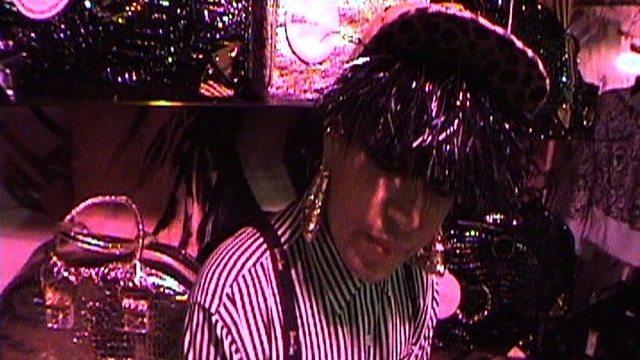This Saturday marks the Canadian premiere of The Little House That Could, a documentary that examines the life of Patricia Field—otherwise known as the Emmy Award-winning stylist behind Sex and the City! The film focuses on Field’s years before outfitting Carrie & co, when she spent decades in New York saving lives and giving hope to an entirely different faction of society: Club Kids, drag queens, gay teenagers, butch-dykes, and other so-called outcasts seeking a place to express themselves and be understood. Director Mars Roberge and his one-man crew capture this unconventional close-knit family and chronicle their wild and game-changing influence on the music and fashion scenes in NYC.
SDTC caught-up with Roberge to discuss his film, and the fierce and fabulous House of Field.
SDTC: What drew you Patricia Field as a subject?
Mars Roberge: I worked at the [Patricia Field’s] store for 10 years and saw tons of crews coming and going, always interviewing her about Sex & The City. But there was so much more that was never spoken about: The House of Field, which is her family of artists that pretty much live with her like one giant gay foster home for under (and over) privileged kids. I want to cover this. I wanted to cover them, especially since nobody had before.
SDTC: I hear that you had a one-man crew (!), and that the film was assembled over 6 years!? Can you speak at all towards what that filmmaking process was like? Any challenges, surprises, etc.?
MR: Jim Jarmush once told my friend and legendary tattoo artist Jonathan Shaw that “if you want to be a filmmaker, pull out a camera and start making a film. It’s that simple.” What he didn’t say is all the craziness that comes in between. Sometimes when you have to do everything, you forget little things (like release forms, power, bad scheduling, tape stock, etc.). You also have so much on your mind that it can be stressful, and then you have to be suddenly pleasant to conduct an interview with a diva. Plus, if you get in a fight with your one and only cameraman, you can’t avoid them for the rest of the shoot; you have to reconcile five minutes later.
Making this film was like taking in oxygen—I had to keep going and finding a way to do it no matter what came in my way. Then the stuff that I thought would be a nightmare actually worked out, like blocking off Bowery in NYC on a Friday night, without a permit, to shoot using giant lights…and having a cop give me a friendly wave as he drove by!
SDTC: That’s amazing! What a cool cop. Now, I also imagine you were working with quite a bit of footage. How did you choose what to highlight, what the central focus/narrative would be?
MR: It was very difficult. I had as much footage (or felt like I did) as Mr. Brainwash did for Exit Through The Gift Shop. It was pretty overwhelming. Luckily, I did have a plan with my questions [for interview subjects], so I knew what I wanted the film to say. Afterwards, I took one of my favorite interviews, laid it out from A to B, and interjected it with everyone else. It allowed me to create bins of similar topics, picking and choosing.
SDTC: I’m always curious about titling a film. Obviously this one speaks for itself in terms of meaning, but does it have any other special significance for you? Do you remember other ones that were tossed around?
MR: The title came instantly, even before I started the project, and I knew it had to be (my ex-wife always said I had a talent in coming up with names for bands, etc.). See, “The Little House That Could” is saying that the little “punk” ball house (the House of Field) that competed in runways in Harlem against other houses made it: They have a store that’s taken over the world of fashion via Sex & The City. As Richard Alvarez explains in the movie, against the odds we got acceptance in the ghetto voguing ball communities. Jumping ahead, 5th Avenue now pays Pat[ricia Field] for advice on fashion. This after we were frowned upon as a three-ring circus group of freaks for many decades by the people who ran those same big department stores. As a house, we made it! It is also symbolic for anyone who has to struggle against society to prove that they were right all along, and that being different is cool.
The Little House that Could screens this Saturday August 24 at Big Picture Cinema (1035 Gerrard St. E.). Doors at 8pm. Tickets are $10 and available at the door.



 Follow Us On Instagram
Follow Us On Instagram
